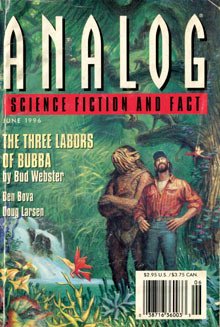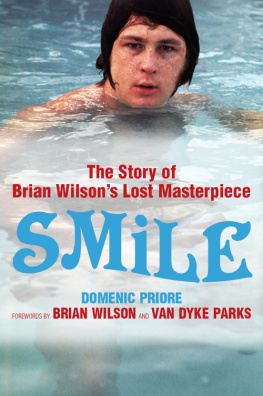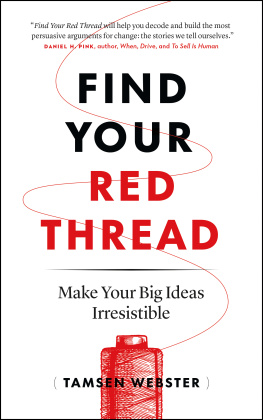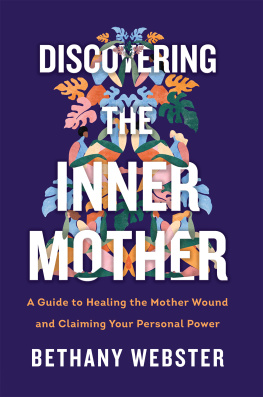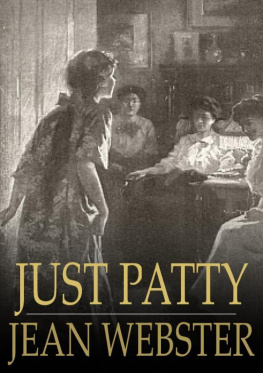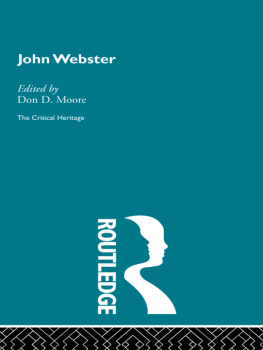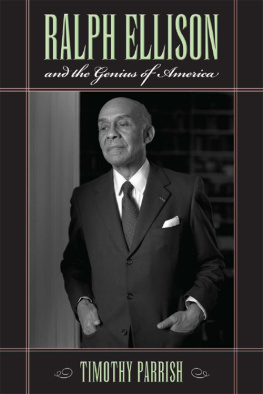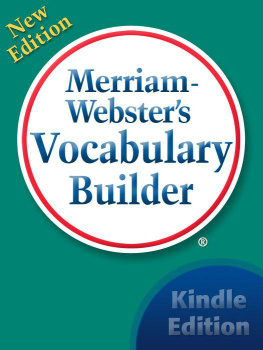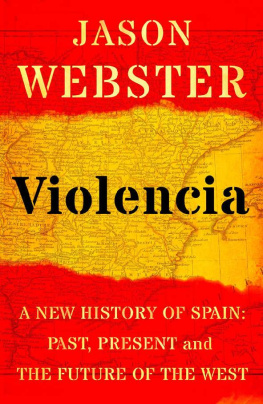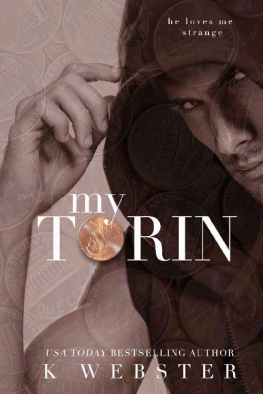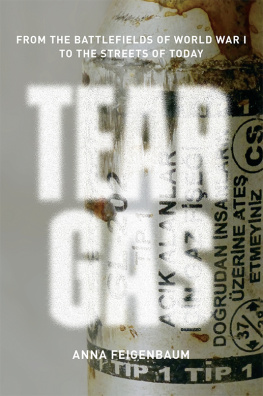a Smile in One Eye
a Smile in One Eye
a Tear in the Other
Ralph Webster
Copyright 2016 Ralph Webster
Cover Design by Joan Webster-Vore
All rights reserved.
ISBN-13: 9781533656926
ISBN-10: 1533656924
Library of Congress Control Number: 2016909395
CreateSpace Independent Publishing Platform
North Charleston, South Carolina
Dedication
To those who must flee their homelands for reasons that make no sense. Let you journey to a kinder place to live in freedom and find a better life.
Ralph Webster June, 2016
Would you tell me, please, which way I ought to go from here?
That depends a good deal on where you want to get to, said the Cat.
I dont much care where, said Alice.
Then it doesnt matter which way you go, said the Cat.
So long as I get somewhere, Alice added as an explanation.
Oh, youre sure to do that, said the Cat, if you only
walk long enough.
Lewis Carroll, Alice in Wonderland
Table of Contents
Preface
D uring the fall of 2015, my wife Ginger and I took an extended trip across mainland Europe. Ours was a pleasure trip. We were hiking. As we went from place to place, there was something significant happening around us that we couldnt help but notice. The refugee crisis was escalating. Thousands of refugees from Syria and Afghanistan were streaming across Europe in search of safety and security. We watched the international news broadcasts each evening as they displayed image after image and discussed the many sides of the burgeoning, and often complicated, controversial refugee situation. Throughout our trip, we met people from all over the world, and the conversation would frequently continue. There were many varied opinions, sometimes finger pointing, and even a few heated exchanges. It was and is a complicated issue.
On a few occasions, at train stations and on trains, we encountered groups of refugees trying to make their way north. Most were headed to Germany. And, in various countries, there were times we watched the police board our train and remove refugees from our midst. We never felt danger. We saw no disturbance. What we watched were people striving to communicate through the medium of different languages. We saw the stress, the toll that leaving ones homeland takes. Every interaction we watched between police and refugees was civil and polite; we never viewed anything less, only a silent procession of people in search of a new life. We saw mothers, fathers, children, and groups of young men. There was no avoiding this. It was in our face, in front of our eyes.
I am the son of a refugee family, and as Ginger and I watched this crisis unfold, it gave me reason to consider my familys journey to the United States and to telling this story. In doing so, I have learned much that I did not know about this issue and my family. I sympathize with the simple truth that todays refugees become tomorrows aliens and recognize that can be a complicated topic too. Of late, there has been much political discourse about refugees: where they should go, who should take them, the danger they could bring to our way of life. There are those who believe that refugees and aliens may be wolves hidden in sheeps clothing. As with anything, I suppose there is truth in everything.
The plight and pilgrimage of refugees is not a new story. It is centuries old. And the distrust of aliens within is a much repeated scenario. It happened in America with the Japanese at the beginning of World War II. It happened in Great Britain when German refugees were sent to internment camps. And when Italy and Britain went to war, it happened again when nineteen thousand Italians living in Great Britain were ordered to be rounded up. There are not enough pages here to list all the examples.
Common sense dictates that nations must concern themselves with their own internal security. Who would argue against that? But it also is not unreasonable to suppose that some might overreact in their response. And, like most complex issues, usually the best answer is not as simple as it may first appear.
This book makes no claim as to who is right and who is wrong. Thats not the point of this story. As some would say, I have no dog in that hunt. I would only offer that most refugees, if not all, are people like you and me, except for that one single difference. They were forced to leave the land of their fathers and mothers, and for most, this was through no fault of their own. Many had created successful lives and have raised incredible families. Now they hope to live with freedom, dignity, security, and opportunity. They have made sacrifices. They have travelled far. Most ask only for a hand up and not for a handout. Most, given the chance, offer more than they would ever take. I have compassion for these people. My family has lived that life, and thats the story I would like to share. If I can illuminate this journey, then I have accomplished what I set out to do.
Ralph Webster, June, 2016
www.smileinoneeye.com
Part One
Germany
Chapter 1
The Sled
B y my fifth winter, I had mastered the skill of riding a sled on my own. With luck and good fortune, December of 1927 in Preussisch Holland was filled with snow beyond the imagination. The hill beyond the old Jewish cemetery, with its craggy imperfections, created the perfect downhill adventure. For the first time, I discovered the competing wonders of independence and daring, a reminder of my first steps, but grander, and so much better. Now my world was expanded. I could roam further than my eyes would take me.
Riding a sled, hurtling downhill, replaced that sense of fear, the safety of being held, with my stubborn desire to be free from protective arms. Here was something I could do alone, a risk I understood and was eager to undertake.
When Father first introduced me to sledding, I was too young to tackle the hill without help. As I climbed aboard the sled and wiggled my small body against his, I felt those uneasy moments of anticipation. I remember shutting my eyes and holding on with all my strength, my hands tightly clenched, as we headed downward. I recall that thrill of riding the sled wrapped in Fathers strong arms, so gentle, yet so secure.
We would sit upright atop the sled. Father would be in back. I would ride in front, my small back to his large chest. As we raced down the hill, my eyes would narrow, all else would blur. Flakes of loose snow would cling to my face, frozen with little needles of ice. My nose would drip. Small icicles would form. Steaming hot chocolate, too hot to hold in my cold, gloveless hands, would be the reward that waited to end the day.
Those winter days, even my decade-older sisters would join the fun. Lotte, the middle sister, was fearless, her excitement hard to contain and contagious. She and I would fly down the hill, tumbling over and over each other when we reached bottom. And she would laugh. No matter what, Lotte would laugh. That was the way Lotte was about everything. Lotte always knew how to laugh. Trude, the oldest, would shout the instructions. She was the one who told us what to do. She expected us to listen. Ilse, the youngest, would ride the hill cautiously, taking care with each turn. She was prone to mishaps. With Ilse, anything could happen. Even then, when I was five, I could see how each differed from the other.







